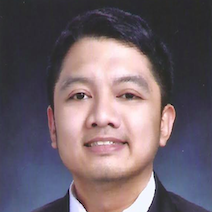

There is another dimension to our healthcare crisis we’re barely talking about. It begins with healthcare professionals lost in a broken system: physicians, nurses, midwives – overworked, underpaid, and drowning in the murky waters of bad politics both in the public and private sphere.
Devolution has relegated healthcare at the mercy of weak local government institutions rampant with small-minded partisanship and paranoia. Those in private practice languish in hospital training programs bogged down by repetitive paper work courtesy of litigation fear, Philhealth CF4, and an expanding HMO insurance system, while also struggling with unjustified pay amid 100-hour work weeks. (READ: Resident doctors are real doctors)
The US-based model of our system portends a future of relentless accumulation, while we are expected to be martyrs offering ourselves to a country plagued by social and systemic injustices. Passion, love, and patient-centeredness implies a willingness to endure and sacrifice, but these ring hollow when they are exploited by the blight of pervasive human greed.
The phenomenon of shaming is the consequence of this failure. We are not allowed to show ourselves sleeping in front of patients despite exhaustion. Our calm is misconstrued as a lack of urgency. Damning ER pictures are shared without context. Doctor-shaming vlogs are monetized at the expense of the reputation of a fellow human being. We are discouraged to show humanity in public lest we stoke the undercurrent of resentment towards a healthcare system that privileges the moneyed. We are asked to do more, to relish toxicity, for we are not allowed to be humans now. “We are sure to become gods later,” say those who see us profiteering off disease, a perception resulting from the anxieties produced by exorbitant healthcare costs. Patients are being treated as consumers, and consumers they are becoming. (READ: [OPINION] A young doctor's views on health workforce in the PH)
We enjoy the nobility of our calling, but the system is dedicated to destroying these values while parroting the same words that rob its meaning. Superhuman feats are lauded while human fragility is mocked. This twisted drive towards excellence comes at the price of physical and mental suffering, a contradiction we are not only expected to live with but to display as a badge of honor.
Physician suicide happens as early as medical school. Sexual harassment and gender discrimination are taboo topics amid powerful male-dominated leaderships, silenced by a “boys will be boys” mentality. Depression casts its dark cloud deep and invisible in the highly stressful environment of medicine. Some older physicians look down on younger doctors, promoting facetious resiliency workshops where a speaker could shamelessly say, “In the hospital, you are not allowed to be a millennial!” while another consultant rants, perhaps broken themselves by years of systemic injustice, “Passion? I’m only here for the money!” (READ: How #NoToDoctorShaming posts highlight gaps in PH healthcare system)
But calling for justified pay is spurned as being entitled. Nurses are chronically underpaid, and younger ones scramble for growth opportunities. Some who can afford the meager pay are forced to swallow it just to have better opportunities abroad. This is also true for private residency physicians receiving only stipends with no benefits despite working more than 80 hours a week. It is truer in the government where healthcare workers deal with hundreds of patients every day while navigating the inefficiencies of local policymakers.
Recently, a doctor “walked out” from his post in Argao. News articles focused on the governor of Cebu citing the Hippocratic oath as a moral mandate for the physician to stay. Nobody asked the right questions: with the recent shift to outsourcing in the province, was there a proper transition plan to support hospitals that will lose manpower? Will that doctor have a reliever after 36 hours of duty? Are DOH personnel guidelines commensurate to the real needs on the ground? Is the doctor’s action motivated by selfishness or as a consequence of inhumane work conditions? (READ: Life of a doctor in the barrio)
But these issues decay in our toxic culture of silence. For this, I would like to take a leaf out of America’s book. The New Yorker recently published an article: Why Doctors should Organize, a culmination of the growing voices of dissent to a system that produces massive burnout. Medscape shied from the term burnout and called it “moral Injury,” and another one went as far as calling it a “human rights violation.” The Lancet declared it a “global crisis” and that “Addressing [it on] an individual level will not be enough, and meaningful steps to address the crisis…. must be taken at systemic and institutional levels...” This paved the way for scientific studies such as Discrimination, Abuse, Harassment, and Burnout in Surgical Residency Training published recently by the New England Journal of Medicine. I’m hard-pressed to find studies like these in a country whose idea of cutting-edge research is detached from our urgent needs as a nation.
It is ultimately about taking back our wasted energies and spending it where it should be: in truly advocating for patients, especially the poor. Growth in suffering does not occur in passive acceptance, but in wresting away the spirit of our calling from those that corrupt it. It is time for journalists, physicians, healthcare workers, academics, researchers, and activists to seize upon this issue and break our culture of silence. – Rappler.com
JM Deblois, 28 years old, is a physician currently training in family and community medicine.